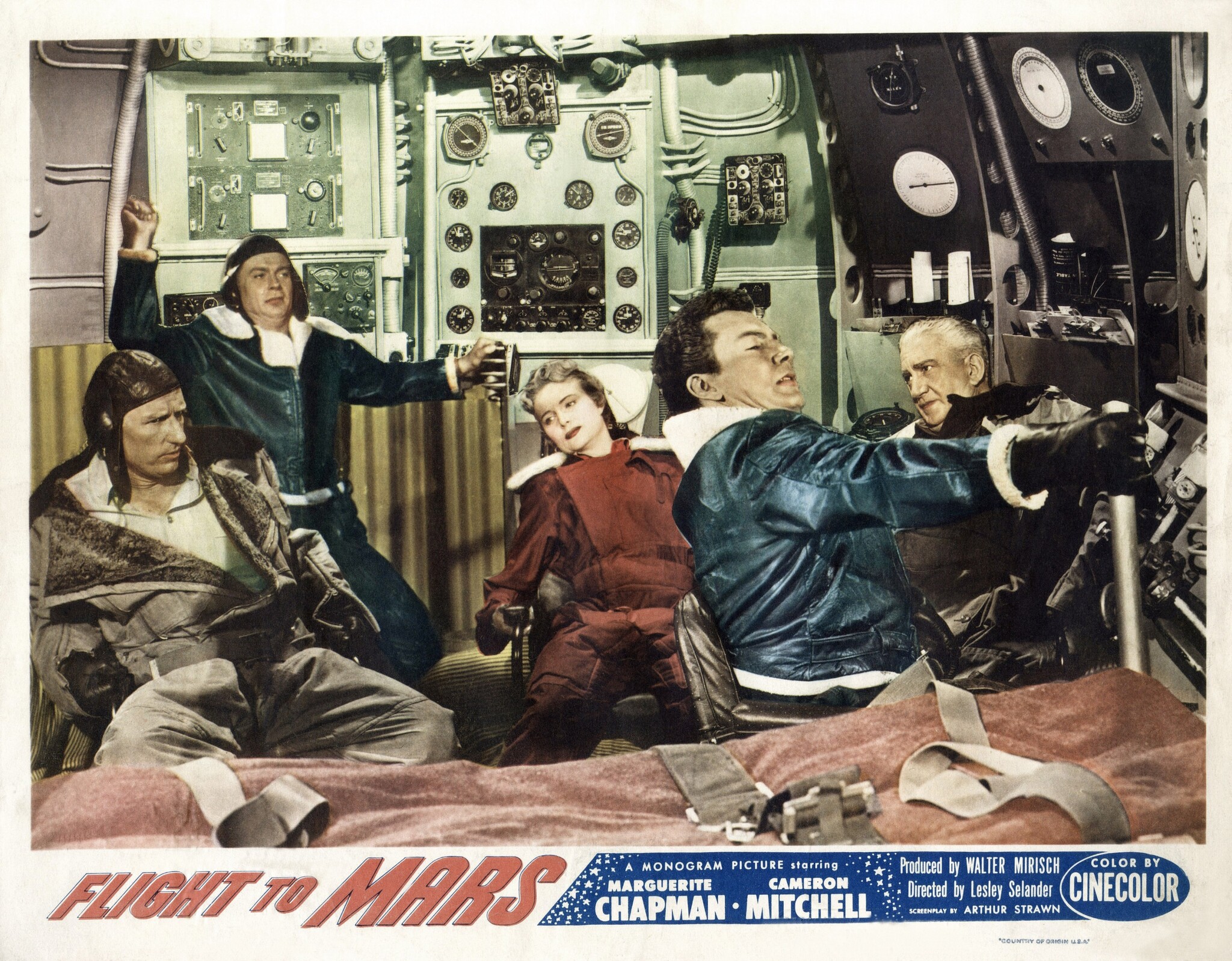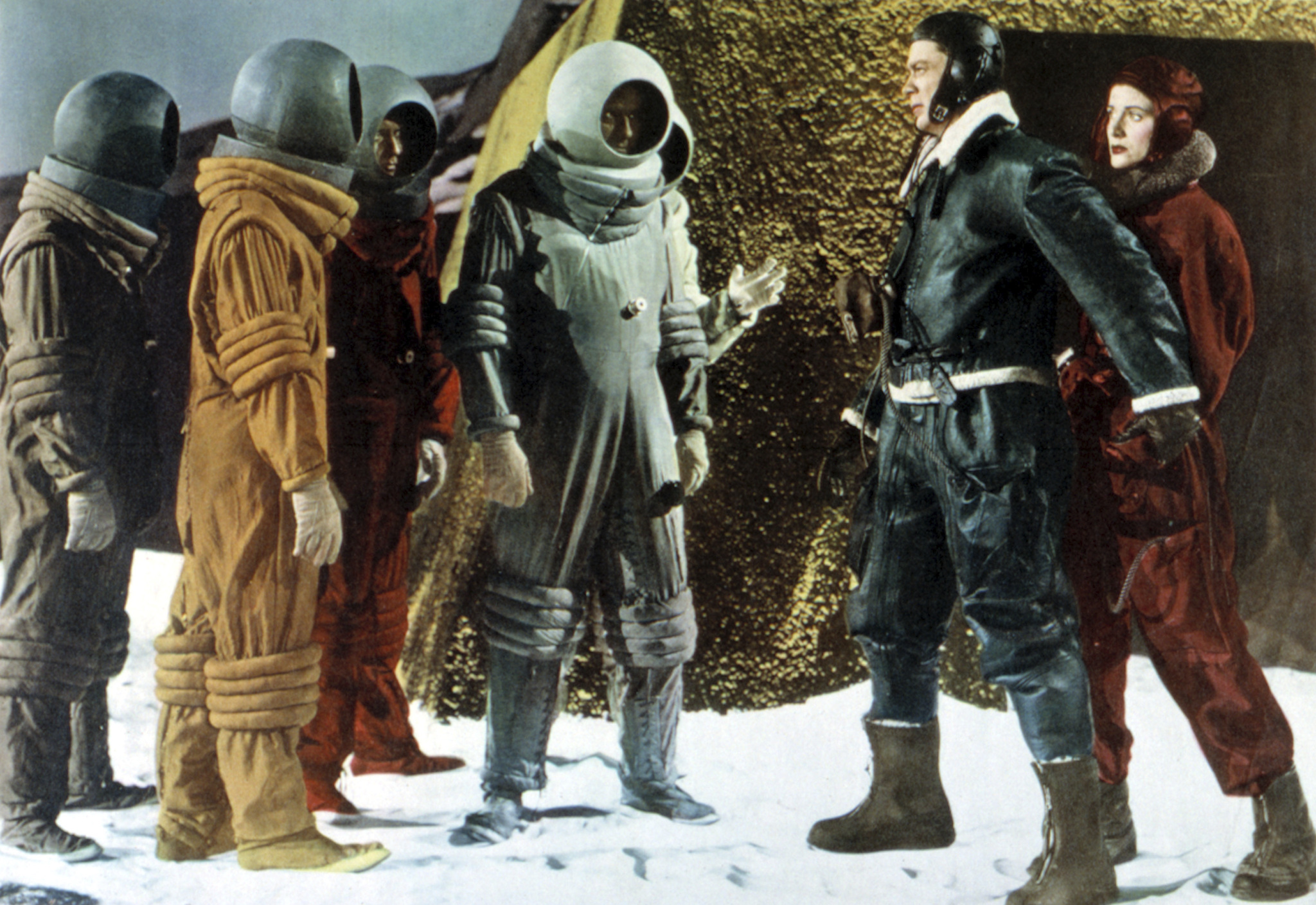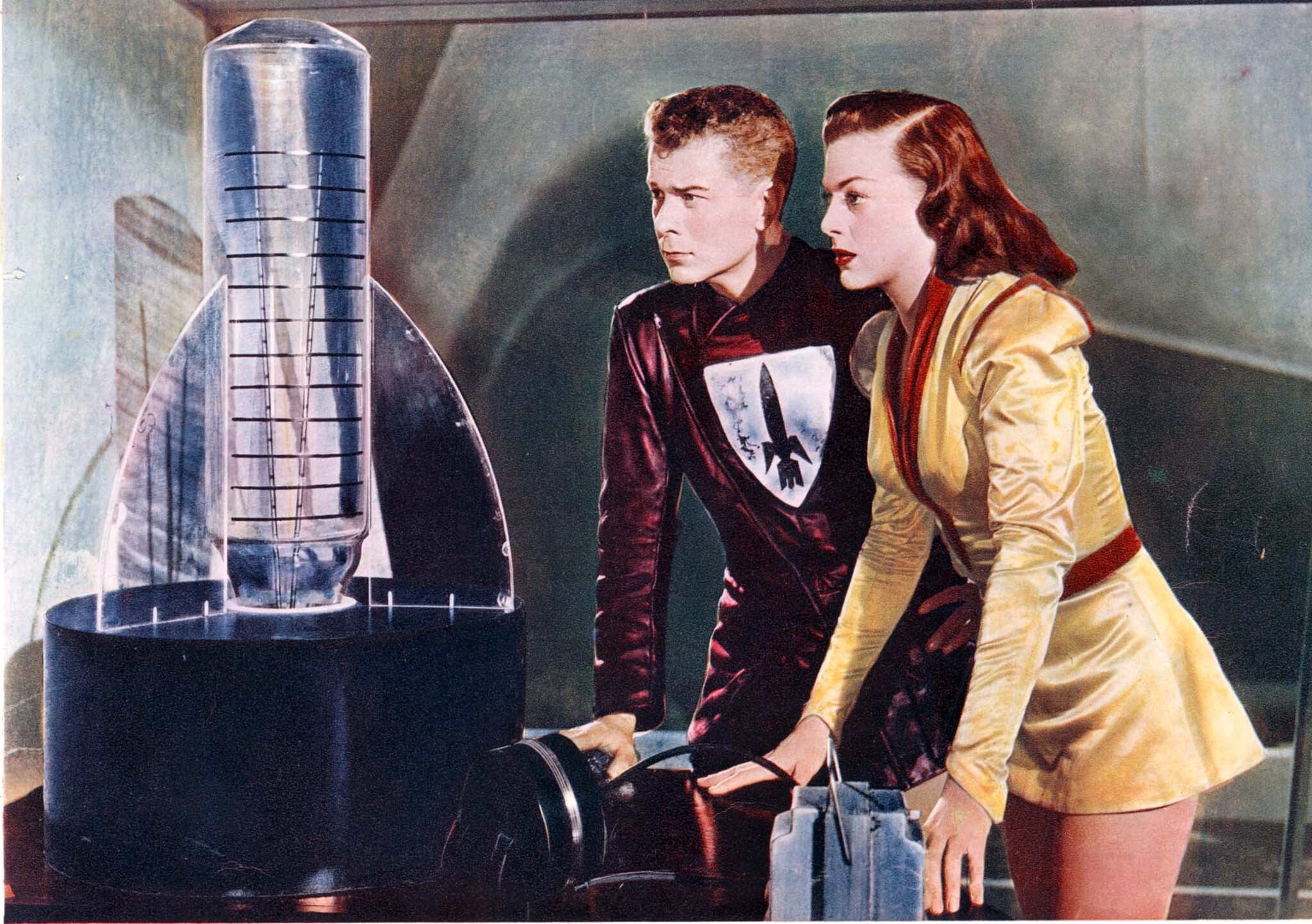Flight to Mars (Blu-Ray Review)
**The Film Detective’s Special Edition for “Flight to Mars” comes out on Tuesday, July 20, 2021. This is a review of not just the film, but the Blu-Ray Special Edition.**

Lesley Selander’s “Flight to Mars” came out 18 years before man landed on the moon in the Apollo 11 mission. That we still haven’t sent people to Mars is an issue of both science and politics, both of which figure in to the film Selander and producer Walter Mirisch have made here. Seventy years after its release, “Flight to Mars” is almost hilariously naive about how man would eventually take to the stars scientifically (but then again, that’s something a lot of films like it was in the 1950s), but it also remains engaging as an adventure movie that tries to take such a prospect seriously.
While I haven’t seen enough 1950s sci-fi in my life (outside of “Mystery Science Theater 3000,” at least), one thing that surprises me in what I have seen is how little of it was filmed in color. I’m sure expense likely played a part of that choice, especially on the B-movie side, but with the possibilities science fiction allows from a visual standpoint, you would have thought more would have taken advantage of color. In “Flight to Mars,” the Cinecolor process to Harry Neumann’s cinematography is not as photorealistic in its colors as, say, “This Island Earth,” but there’s a painterly beauty to the images, especially when the crew goes into space, that fits in line with the tinted frames of Georges Melies’s “A Trip to the Moon”; seeing as though this is also a fantasy about space flight, the comparison more than makes sense, and should be seen as a compliment by all involved.

Arthur Strawn’s simple screenplay begins with the military having an immediate announcement- that they are prepared to send a manned mission to Mars. No, we don’t really find out what led to them being able to do so- they are just able to do so. We then meet the crew- physicist Dr. Lane (John Litel), Professor Jackson (Richard Gaines), engineer Jim Barker (Arthur Franz) and his assistant, Carol Stadwick (Virginia Huston). Providing the layman’s perspective is journalist Steve Abbott (Cameron Mitchell), whom will tell the story of the mission, and send his reports via cylinders which will be released from the capsule (I wouldn’t worry about the science of how they’re supposed to get back to Earth). They launch, and make their trip, but after a meteor storm, the landing gear and radio is damaged, and they only have two options- keep going to Mars, even if they cannot return, or return to Earth. They push on to Mars, and after crash landing, encounter martians at the base of one of their above ground structures. The leader, Ikron (Morris Ankrum), explains that they have been receiving Earth broadcasts, hence why they are able to speak English, although they have no ability to transmit back. They offer to help the crew repair their ship, but might have a more nefarious reason behind it.
From what we’ve learned about space travel over the past 70 years, there are some things about “Flight to Mars’s” concepts of interplanetary travel that hold up, while others are as hilariously dated as anything else we’ve seen in sci-fi, even something as forward thinking and optimistic as “2001: A Space Odyssey.” One thing I do greatly appreciate about the film is how it treats space flight seriously from a perspective of being a life-and-death scenario; it’s one of the things Abbott will learn in his early interviews prior to lift off, and it’s a serious consideration when the choices have to be made later in the film. Does that make “Flight to Mars” high drama? No, but it does give weight to the decisions made later in the film, which many movies like this miss out on. As an adventure, the film seems to make an abrupt stop at the end after building up tension; allegedly, the film was shot in five days, but I feel like one more scene at the end with the crew might have made the film feel as though it didn’t feel rushed to get to that “The End” title card.

Blu-Ray Presentation
I will be the first to admit that, looking and listening to a film’s home release presentation in terms of picture and sound is not my specialty; it is something that has always interested me, especially when it comes to older films, though, and I feel like “Flight to Mars” has been well served in this restoration. Andrea Kalas, Charles Stepczyk and Charlotte Johnson are responsible for the 4K restoration and preservation of “Flight to Mars,” and the film looks absolutely beautiful. The color is beautiful and makes the film feel like a lush, imaginative fantasy. The flesh tones are all strong and realistic, while the production design and effects, especially during the titular flight to Mars (and then, when they are on the Red Planet), create an otherworldly atmosphere that serves the film’s look well. From an audio standpoint, the Mono sound mix sounds like it’s brand new, with no seeming scratches on the dialogue, and giving Marlin Skiles’s score a chance to shine.
The bonus features have always been my favorite part of DVDs and Blu-Rays. The easiest one to discuss is the booklet included, which is full color and includes an essay by Don Stradley called Mars at the Movies, about the history of Mars on the big screen up to the present day. The one I was most interested in checking out, however, was the audio commentary by historian Justin Humphreys. It’s an informative track, even if it’s a bit dry, looking at the larger history of American science fiction genre at the time, as well as the film in particular. He understands what “Flight to Mars” is in context to a genre that was really starting to define itself, and he does criticize it rightfully for some almost pedestrian direction, but he also points to things he appreciates about it, as well. When he discusses some of the credits a lot of the cast and crew would have outside of “Flight to Mars,” you’ll probably be surprised, pleasantly. Rounding out the special features are two short documentaries- “Walter Mirisch: From Bomba to Body Snatchers,” in which historian C. Courtney Joyner lays out the history of Monogram Films, and its evolution to Allied Artists under the guidance of Mirisch, as well as his career in general; and “Interstellar Travelogues: Cinema’s First Space Race,” where science fiction artist Vincent Di Fate narrates the early history of cinema going to space, from Fritz Lang to the early 1950s. If you want to know a bit more about “Flight to Mars” in particular, the commentary is for you. If you’re interested in film history, and science fiction film history, in general, you’ll get a lot out of the bonus features on this disc.
Film Grade: B+
Audio & Video: A
Special Features: A-
Watching it, even on such a wonderful disc as this, you can kind of see why “Flight to Mars” isn’t seen as significant compared to some of the other films of the genre from the early 1950s. If you’re a fan of the genre, though, and are interested in films from that genre beyond the most well known ones, this disc offers you a good starting off point for that deep dive.










